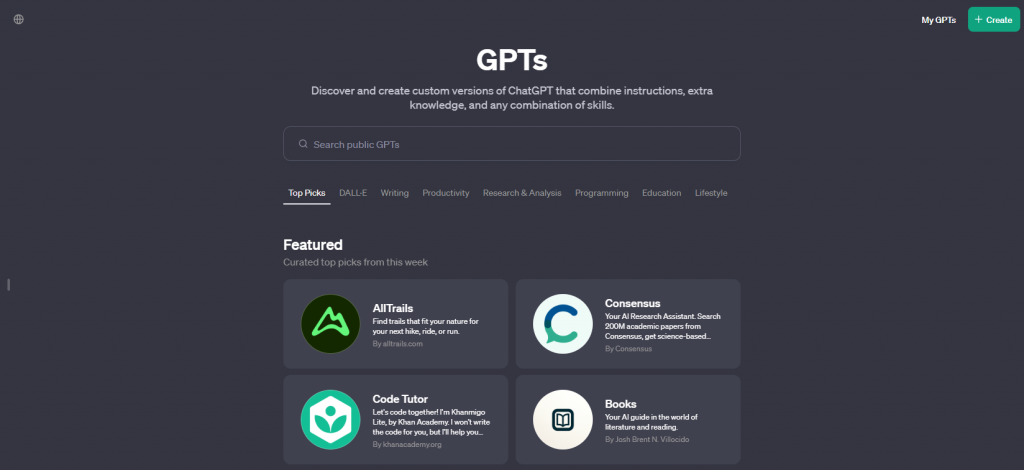In the rapidly evolving landscape of AI, OpenAI has made a significant move by launching the GPT Store. This development has sparked a mix of enthusiasm and skepticism across the digital world. While some are still contemplating the integration of AI into their workflows, others are leveraging GPTs for profit.

Upon its launch, comparisons were inevitably drawn between the GPT Store and Apple's App Store. OpenAI's founder, Sam Altman, boldly claimed that the platform would democratize the ability to generate revenue. However, just a day after its launch, opinions about the GPT Store have sharply polarized.
The 'Silicon Base Research Lab' has analyzed the GPT Store and arrived at two key insights:
- OpenAI is ambitious yet perhaps overly eager.
- Drawing parallels between the GPT Store and the App Store is premature.
OpenAI's Ambition: A Super Gateway and Ecosystem Moat
Why GPT Store?
In the short term, the GPT Store aims to capture traffic and enhance valuation. It combines search and recommendation features, operating in a semi-open, semi-centralized manner. Users can search for GPTs directly, with popular ones gaining official recommendations. Additionally, each GPT includes a link to the developer's website, making the GPT Store a significant traffic source for developers.
In the long term, OpenAI's vision extends beyond immediate gains. The GPT Store is seen as a potential super gateway, challenging traditional search engines as it evolves from decentralized to centralized. It's also part of a larger strategy to establish a robust AI ecosystem, likened to an AI-era operating system with GPTs as its apps. If successful, this could create a formidable moat for OpenAI.
The Long Road to Rivaling the App Store
Despite its early-stage development and traffic advantages, the GPT Store faces challenges in replicating the App Store's success. The fundamental difference lies in their respective models. For OpenAI to succeed as a technology marketplace, it must ensure quality standards and provide stable interfaces and development tools for creators, akin to Apple's iOS SDK.
However, the GPT Store currently lacks robust barriers to entry, leading to a proliferation of homogenized GPTs. The absence of comprehensive guidelines, tutorials, and user feedback mechanisms further complicates the ecosystem.
For developers, the GPT Store offers a platform for rapid MVP development and market validation. Yet, the path to monetization remains unclear, with concerns about potential manipulations in GPT rankings.
Conclusion
OpenAI's GPT Store represents a bold step into the future of AI commercialization. While it opens new opportunities, it also faces significant operational challenges, such as protecting intellectual property rights. For developers, the key lies in leveraging GPTs for more specialized and vertical explorations.
